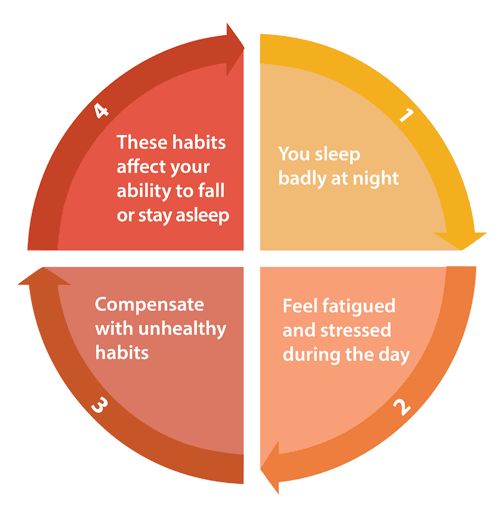Sleeplessness
May 27, 2019 • 35 views

Sleep problems in the elderly are not a normal part of aging
saysDr. Julie Gammack, assistant professor of geriatrics at Saint Louis University.
It contributes to an increased risk of accidents, falls and chronic fatigue. Our children and teens, too, are having trouble sleeping. Difficulty falling asleep is the most common complaint among adolescents. In a national survey on the sleep patterns of U.S. adolescents ages 11-17, the 2006 Sleep in America poll by the National Sleep Foundation found only 20% of adolescents were getting the recommended nine hours of sleep on school nights and 45% slept less than eighthours.

Stress is a leading cause of abnormal sleep patterns. Research shows it is a common trigger for both short-term and chronic insomnia. Stress can result from health concerns, depression and anxiety among other things, but perhaps the most insidious cause is the fast-paced world in which we live. Technology, world events and our ever-increasing knowledge about our world and the universe seem to have put time on a relentless treadmill and keeping up can wear out even the most determined among us. Scientific research by the HeartMath Institute shows stress creates incoherence in our heart rhythms, and when the heart is out of sync normal sleep patterns can be interrupted.
Acute vs. Chronic Insomnia
Insomnia also varies in how long it lasts and how often it occurs. It can be short-term (acute insomnia) or can last a long time (chronic insomnia). It can also come and go, with periods of time when a person has no sleep problems. Acute insomnia can last from one night to a few weeks. Insomnia is called chronic when a person has insomnia at least three nights a week for three monthsor longer.
Treatment for Insomnia
Acute insomnia may not require treatment. Mild insomnia often can be prevented or cured by practicing good sleep habits (see below). If your insomnia makes it hard for you to function during the day because you are sleepy and tired, yourhealth careprovider may prescribe sleeping pills for a limited time. Rapid onset, short-acting drugs can help you avoid effects such as drowsiness the following day. Avoid using over-the-counter sleeping pills for insomnia, because they may have undesired side effects and tend to lose their effectiveness over time.
Treatment for chronic insomnia includes first treating any underlying conditions or health problems that are causing the insomnia. If insomnia continues, your health care provider may suggest behavioral therapy. Behavioral approaches help you to change behaviors that may worsen insomnia and to learn new behaviors to promote sleep. Techniques such as relaxation exercises, sleep restriction therapy, and reconditioning may be useful.
Good Sleep Habits for Beating Insomnia
Good sleep habits, also called sleep hygiene, can help you get a good night's sleep and beat insomnia. Here are some tips:
Try to go to sleep at the same time each night and get up at the same time each morning. Try not to take naps during the day, because naps may make you less sleepy at night.
Avoid prolonged use of phones or reading devices ("e-books") that give off light before bed. This can make it harder to fall asleep.
Avoidcaffeine, nicotine, and alcohol late in the day.Caffeineand nicotine are stimulants and can keep you from falling asleep. Alcohol can cause waking in the night and interferes with sleep quality.
Get regularexercise. Try not to exercise close tobedtime, because it may stimulate you and make it hard to fall asleep. Experts suggest notexercisingfor at least three to four hours before the time you go to sleep.
Don't eat a heavy meal late in the day. A light snack beforebedtimes, however, may help you sleep.
